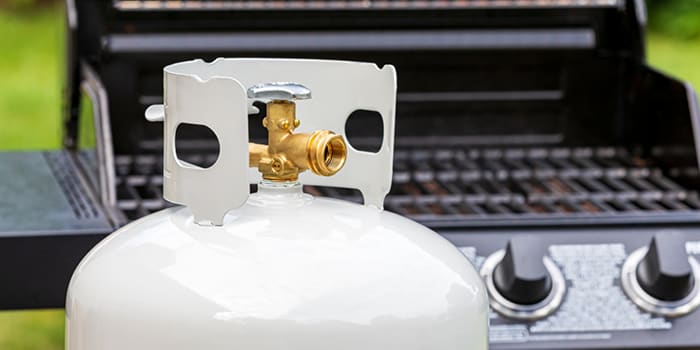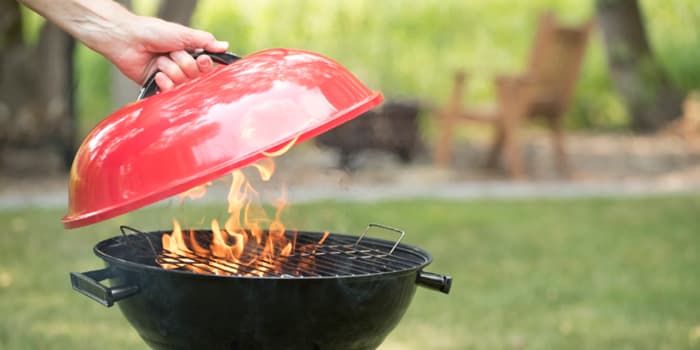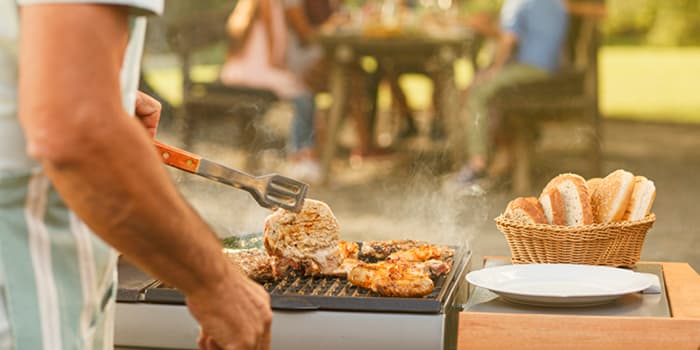What You Need to Know Before Firing Up the Grill in an HOA

One of the best ways to take advantage of a beautiful day is to get outdoors to grill. While some homeowners’ associations (HOAs) provide grills for community use, there’s an estimated 100 million grills in homes in the United States. No matter what your grilling options are, preventing fires during grilling season is a top priority in all communities. To learn more about grill safety in an HOA, follow this guide.
Grilling Rules in an HOA
HOAs often include grilling restrictions in their governing documents. Found within the rules and regulations, these policies aren’t meant to be a nuisance to residents. Instead, they’re designed to keep the community safe, prevent fires, and comply with local building and fire codes—a fire can double in size or rage out of control in 30 seconds or less. To limit the use of fire hazards, HOAs may provide different grill rules for the various types of grills available. Common restrictions for the most popular grill varieties include:
Charcoal Grills
Charcoal grills are classic cookers that use charcoal briquettes or lump charcoal as fuel. These create heavy smoke. Managed communities typically restrict how close to homes charcoal units can be used and when you can cook to avoid disputes over smoke.
Gas Grills
Powered by your home’s natural gas supply, gas grills ignite with just the turn of a knob and are favored for their consistent temperatures and user-friendly nature. However, they can also pose a significant fire risk —gas grills are involved in over 9,000 house fires yearly. Before investing in a gas grill, check to make sure your community is set up with easy outdoor access to your gas line. Some associations are purposefully structured to avoid gas-powered setups.
Propane Grills
Propane grills work like gas grills but use refillable propane fuel instead of a direct gas connection for more convenient grilling and portability. The size of the gas tanks may be limited by an HOA policy to minimize fire dangers. How those tanks are stored will also likely be regulated.

Communicating Grill Safety Tips to the Community
Proper grill management is essential for all community members to know. Use your community newsletter, website, and board meetings to communicate grill safety tips to residents. Grilling rules, safe handling instructions, and maintenance reminders can be shared as grilling season begins. By providing the community with safe grilling practices, boards can ensure fewer violations and a more enjoyable season.
Grill Cleaning Tips for Safer Use
Cleaning your grill will help it run as it should, give you the best-tasting food, and decrease the chances of food buildup and other issues, which can spark fires. Clean the grill after every use, and deep clean it at least once a year. Your cleaning routine should involve:
- Using vegetable oil and a long, wire brush to clean the grill grates.
- Using mild dish soap and a steel brush to clean the grill’s lid and/or bowl.
- Charcoal grills: Using mild dish soap and a steel brush to clean the grill’s lid and bowl.
- Charcoal grills: Removing the charcoal bricks after letting them cool and brushing out the ash.
- Gas grills: Turning off all gas sources.
- Gas Grills: Removing the heat deflectors and washing with soap and water.

Safe Grilling Practices in HOAs
By following just a few tips, grills can be safely used in HOAs. To handle a grill safely in an HOA, keep this in mind:
- Only grill outside. Make sure the grill is placed a safe distance (at least three feet) from any part of nearby homes.
- Keep a safe zone around your grill. Apply three feet of space between the grill and items, pets, or children.
- Open your gas grill before lighting. Gas can build up and cause an explosion if this is forgotten.
- Keep an eye on your grill. Unless you’re cooking low and slow, never leave a grill unattended.
- Clean after every use. You’ll need to remove grease so that the buildup doesn’t cause a fire.
- Dispose of coals properly. Once cooled, dispose of ash in a metal can.
- Store a fire extinguisher. Place it near the grill in case of an emergency.
- Post safety guidelines and grill instructions. Make them easily visible in your common area to ensure residents take notice.
Where to Place a Grill for Safe Use
Grills should always be placed outdoors in a space that’s far from the home—or other structures—and free of foliage. While single-family HOAs may allow backyard grills, many condo associations regulate where to place a grill on a balcony. Local regulations, condo policies, and fire codes usually prohibit open flames near open-family dwellings. Check your community’s rules and regulations to confirm proper placement of your personal grill.
More Seasonal Maintenance Ideas
Grill safety is top of mind during summer, but the season’s high temperatures also impact building structures, roadways, landscapes, and much more. To understand what to tackle this season, read our “Summer Maintenance Guide.” It’ll walk you through everything you need to do to keep your community looking and performing its best all season long!
HOA Grill Safety FAQs
Can a HOA stop you from grilling?
Your homeowners’ association likely can’t stop you from grilling, but it can issue fines and consequences if you violate the rules. Research your community’s grilling rules found in the governing documents to learn if grilling is allowed in your community.
Can neighbors complain about grilling?
Yes, neighbors in an HOA can complain about other residents’ grilling. Generally, complaints stem from the amount of smoke generated by grills, the hours that grills are used, and the noise level that accompanies grill use.
What is the national fire code for grills?
The National Fire Protection Association (NFPA) provides fire codes for grills in NFPA 1 (the general fire code) and NFPA 54 and 58 (for propane and natural gas). The details of these codes are mainly related to how grills are stored and safety guidelines for their fuel sources.